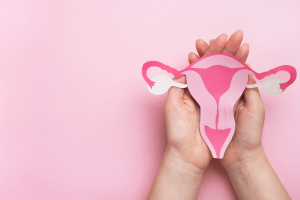

When it comes to emergency contraception and birth control pills, there can be a lot of confusion in people. Both of them are methods of birth control used to prevent pregnancy. What’s the difference between emergency contraceptive pills and birth control pills? Which anti-pregnancy tablet should we get? Which is the best birth control pill? These are some of the questions most of the couples have.
Well, both pregnancy control pills may sound pretty similar in a lot of ways but they do differ in a few ways. To help you figure out which birth control method is best for you, we’ve rounded up all the information on both.
What are Birth Control Pills?
Oral contraceptives, usually known as birth control pills, are tablets that are administered orally to prevent pregnancy. They’re an effective method of birth control, according to the Food and Drug Administration (FDA), with an efficiency rate of roughly 91 percent (or a failure rate of 9 percent).
It’s a type of oral contraceptive that has a small quantity of hormones in it. The hormones in these birth control pills operate by preventing ovulation or the release of an egg from the ovary. These birth control pills contain the hormones oestrogen and progestin that may thicken the lining of uterus where fertilised egg cannot attach
They come in a pack with one pill designated to each day, usually for a 28-day cycle. You can consume these pills on a daily basis, usually at the same time each day, depending on the pill you are prescribed. These medications keep certain hormones elevated, thereby reducing your chances of becoming pregnant.
What is Emergency Contraception?
Emergency contraception is a birth control method that women can use within 72 hours (three days) to 120 hours (five days) of having unprotected vaginal sex, depending on the type of medicine. Preventing pregnancy with emergency contraceptive pills is a safe option.
Although it is commonly referred to as the “morning after pill,” it does not have to be taken the next day. If you’ve had unprotected sex and have a pill on hand, take it as soon as possible.
An intrauterine device is another type of emergency contraception. Your healthcare professional implants this kind of long-term birth control into your uterus. It’s incredibly effective and doesn’t need you to take any further precautions to avoid pregnancy. After unprotected sexual intercourse, your doctor can implant an IUD within 5 days to prevent pregnancy.
Birth Control Pills vs Emergency Contraception: What’s The Difference?
- Birth control pills are used on a regular basis to avoid pregnancy, whereas emergency contraception is used as a backup contraception when consumed within 72 hours of unprotected intercourse or when birth control fails.
- Birth control pills require a prescription, although most emergency contraceptive pills can be bought over-the-counter (OTC) without one. Age restrictions may apply.
- Nausea, headache, breast soreness or pain, and irregular bleeding/menstrual irregularities are all common side effects of birth control pills as well as emergency contraceptives.
- Weight gain, sparse menstrual cycles, excessive bleeding, and mood swings are all side effects of birth control pills that are different from ECs.
- Lower abdomen pain, weariness, dizziness, and vomiting are all side effects of emergency contraceptives.
Dosage of Birth Control Pills
A majority of birth control pills come in 21-day or 28-day packs. Tablets are taken daily for 21 days in 21-day packages. After that, there is a seven-day interval when no birth control pills are used. The cycle then begins again.
For the 28-day units, drug-containing tablets are taken for 21 days in a row, followed by a seven-day period of placebo pills (carrying no medication).
For the first seven days after starting birth control pills, women should use alternative contraception because pregnancy can develop during this time.
If women forget to take their medications, they might get pregnant. If a single tablet is missed, it should be administered as soon as the mistake is realised. If more than one pill is forgotten, the package recommendations should be followed or a physician or pharmacist should be contacted.
Dosage of Emergency Contraceptive Pills
Emergency contraceptive pills should be used as soon as possible but no later than 72 hours after unprotected sex or when birth control fails.
Conclusion
Choosing a method of birth control can be tricky, especially if you are unfamiliar with the subject. However, it’s important to remember that not every pill or birth control method is right for everyone. Consult your doctor to learn which birth control option is best for you.




